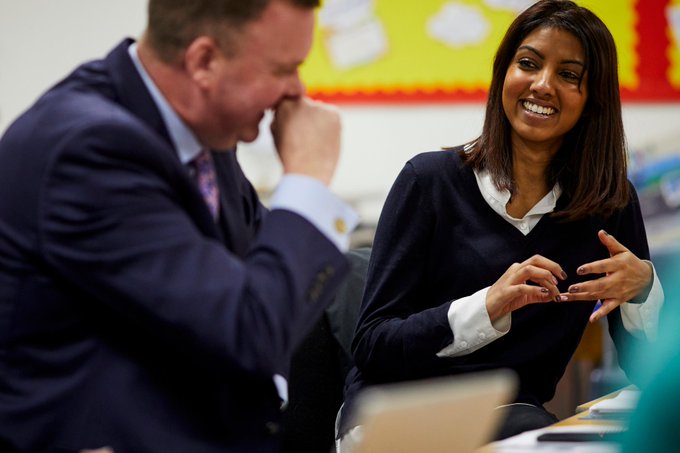New League Tables To Motivate Catch Up
With forty percent of schools not yet making use of the National Tutoring Programme (NTP), ministers plan to hold schools to account with the publication of new tutoring league tables this autumn. Data will also be shared with Ofsted to improve transparency and encourage uptake of the programme, whilst the government confirms it will get in contact with schools not yet signed up to ‘discuss their plans and offer further support.’ Earlier this week, during the bank holiday Monday, Education secretary Nadhim Zahawi wrote to schools directly, reminding them not to ‘miss out on an opportunity to help pupils.’
General secretary of the ASCL, Geoff Barton, considers these recent developments ‘effectively a new accountability measure that has been introduced at the eleventh hour in a rather underhand manner.’ Due to the various complications associated with the programme, some of which were discussed in our previous blog, union leaders contend that it is the government which should be held to account, rather than shifting the blame onto schools. Paul Whiteman, leader of the NAHT, argues that ‘ongoing delays, conflicting guidance, and a shortage of high quality tutors in some areas has meant many schools have simply not been able to use the NTP. Rather than trying to pressurise schools into using it, the government should focus on building a tutoring programme and an infrastructure that is actually fit-for-purpose.’
The government reiterates that the NTP is central to the Parent Pledge, recently unveiled in the Schools White Paper, which guarantees children will ‘receive tailored support to help them get back on track and parents will be kept up to date on their progress.’
Challenging the “Culture of Exclusion” in Schools
As part of its mission to support marginalised children, and prevent them from falling into lives of violence, exploitation and crime, the Commission on Young Lives published a report earlier this week, outlining the shortcomings of the education system in England alongside suggestions for improvement. Led by former children’s commissioner Anne Longfield, the report calls for a ban on primary school exclusions by 2026, with greater efforts to reduce exclusions in secondary schools.
Additionally, the commission calls for the reform of alternative provision, following research which shows that over a quarter of pupils who finish education in alternative provision go onto become NEET (not in education, employment, or training). Whilst conceding that some children do need specialist provision, the report states ‘every child has the right to learn alongside their peers.’ Consequently, the commission argues in favour of establishing internal specialist support within mainstream schools. It also recommends rebranding more specialist alternative providers to make them more inclusive, whilst scrapping the term “Pupil Referral Units” altogether.
Anne Longfield explains that these measures must be introduced to tackle what she describes as a “culture of exclusion,” a system that ‘perversely rewards removing some vulnerable children from the school roll.’ To incentivise a more inclusive culture, the report argues that schools should be assessed on inclusion and wellbeing, rather than just pupil attainment. Therefore, it proposes the introduction of a new inclusion measure to inform Ofsted judgements; school league tables that depict pupil wellbeing alongside exam results; and the requirement for schools to publish annual reports on the numbers of children that have been excluded.
Whilst the commission criticises primary school exclusion as a ‘short-sighted and […] harmful decision,’ others feel that consideration must be extended for the safety and wellbeing of all other children in class. Tom Bennett, the Department of Education’s behaviour advisor, makes the point that ‘permanent exclusions are incredibly rare in primary school – they exclude on average once every 10 years. They are only used when absolutely necessary, to preserve the safety and learning of students. Anyone advocating otherwise, however well meaning, is inadvertently campaigning to endanger children and staff.’
Ofqual’s Plan for Qualifications
Ofqual presented its corporate plan this week, outlining its vision for the qualifications system over the next three years. Whilst prioritising the smooth delivery of exams in the immediate aftermath of Covid, Ofqual also looks towards the future to see how formal assessments might be transformed.
Taking all the lessons of the pandemic on board, Ofqual pledges to improve the design, delivery and awarding of qualifications through innovative approaches and greater use of technology. For example, it plans to explore the potential of adaptive testing, or personalised assessment, using computerised exams that adapt to the students ability in real-time, with the possibility of replacing tiering in certain GCSEs. Ofqual also states that it will compare the advantages alongside the risks of remote invigilation, which would allow pupils to sit exams at home or at the workplace.
Ofqual makes a series of other proposals to improve quality and promote public confidence in qualifications, such as researching methods to identify bias in written exams, and exploring the use of more objective test questions.
After launching the first ever Ofqual listening tour, which allowed students, apprentices, teachers, and school leaders to share their views, Chief Regulator, Dr Jo Saxton, reflects on the value of engagement, stating that ‘I know that we will regulate most effectively on students’ behalf if we take a co-regulatory approach […] and this will be our focus in the period of this corporate plan.’
As we strive to maintain order across the school week, a task that – naturally – is never quite complete, it can be easy to fall into routine and stick to what we know. But by debating with others, or simply questioning ourselves, in one way or another, dialogue and reflection allows us to continue to grow.
With this in mind, One Education can audit your current provision and develop action plans to help you progress, whilst keeping you informed of the latest guidance and research. Explore our services to see where we can help your school.












